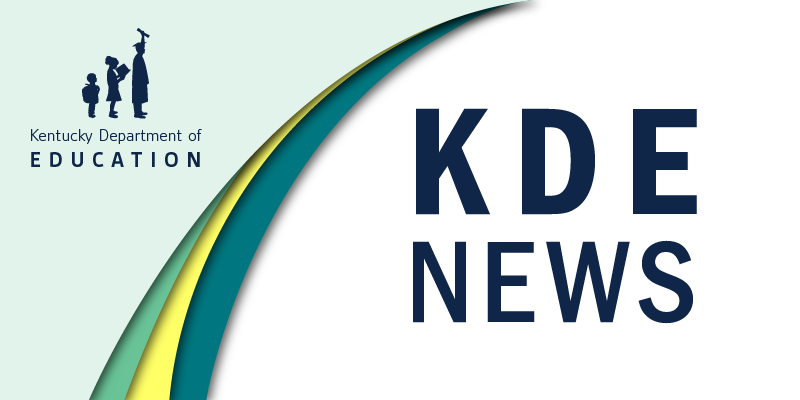- The implementation of Kentucky’s 5-Star accountability system is designed to promote higher levels of student learning and achievement; reduce achievement gaps and ensure equity; build a culture of high expectations and continuous improvement; and communicate a clear and honest understanding of strengths and opportunities for improvement in schools and districts.
- The Office of Career and Technical Education will present the Kentucky Academic Standards for Career Studies (K-12) and Financial Literacy (9-12) at the Kentucky Board of Education’s Aug. 7 meeting.
By Jacob Perkins
Jacob.perkins@education.ky.gov
The School Curriculum, Assessment and Accountability Council (SCAAC) discussed changes to the state’s accountability system at its July 16 meeting in Frankfort.
Associate Commissioner Rhonda Sims and Division Director Jennifer Stafford of the Office of Standards, Assessment and Accountability discussed the revised definition of Targeted Support and Improvement (TSI) schools and the creation of Additional Targeted Support and Improvement (ATSI) schools during the last legislative session under Senate Bill 175.
Under the legislation:
- A school will be designated annually for TSI if at least one subgroup performs in the lowest 5% of all schools for three consecutive years and the school is in the lowest 10% of all schools.
- Beginning with the 2020-2021 school year and every three years thereafter, KDE will identify a school for ATSI if the school has been identified for TSI and has at least one subgroup that performs in the lowest 5% of all schools.
Sims and Stafford also discussed Kentucky’s new 5-Star rating system – with 1 star being the lowest and 5 stars the highest – that will appear on the School Report Card this fall. Elementary and middle schools will receive star ratings based on student assessments in reading, mathematics, science, social studies and writing; and student growth in reading and mathematics. High schools will be rated based on student assessments in reading, mathematics, science and writing; transition (academic or career) readiness; and graduation rate. Elementary and middle school accountability will contain a measure of growth on (and high schools for attainment of) English language proficiency for English learners on an exam that includes speaking, listening, reading and writing in English.
The 5-star accountability system is designed to help the state make gains in closing achievement gaps. A school or district that would have been a 5- or 4-star will be reduced by 1 star if it has not addressed significant achievement gaps between the performances of groups of students.
“Let’s just say that we have a school that’s just blowing it out of the park, super high scores, all the way at the top at proficiency, all the way at the top of separate academic, especially those high value areas,” Sims said. “But you still have a group of kids that aren’t seeing that success, to the level that it’s a statistically significant difference, then what that could do is lower the rating of the school from being a 5-star to a 4-star.”
Committee members also discussed the Kentucky Academic Standards for Career Studies (K-12) and Financial Literacy (9-12), which are currently under development.
“In August, we will be presenting these standards to the Kentucky Board of Education for the first read,” said Pamela Moore, division director of the Office of Career and Technical Education and Student Transition (OCTEST). “Hopefully, giving about a 10-month process, we hope to have the standards ready prior to August of the 2021 school year.”
Teresa Rogers, technical literacy consultant for OCTEST, said that there was significant business and industry partnership that took part in the revision process of the career studies and financial literacy standards.
KDE’s two Business and Education Advisory Panels, one for Career Studies and one for Financial Literacy, determined that the standards should be grouped into three categories: career exploration, preparation and application; essential life skills; and personal financial responsibility.
The Career Studies Business and Education Advisory Panel consisted of four business and industry professionals and five educators – one elementary, one middle school, two high school and one post-secondary. The Financial Literacy Business and Education Advisory Panel had six business and industry professionals and four educators – three high school and one post-secondary.
Anyone who was interested was invited to review the career studies and financial literacy standards to share feedback and suggestions for use in the review and development process for the new standards. Feedback and comments were thoughtfully considered, and any needed revisions were made.
The vision of the Career Studies and Financial Literacy Standards, said Rogers, is to take a student’s academic foundation and connect it with career studies. This would allow for an integration of career exploration across different content areas. The Financial Literacy Standards were developed for grades 9-12 in response KRS 158.1411 to meet the Kentucky public high school graduation requirements.
“(The writing team) were really intentional that all students would graduate from high school with the knowledge and skills needed to be successful life-long learners and productively-engaged citizens,” Rogers said.
A draft of the standards can be found on the Kentucky Department of Education website.
The SCAAC meets quarterly to study, audit, review and make recommendations concerning Kentucky’s system of setting academic standards, assessing learning, identifying academic competencies and deficiencies of students, holding schools accountable for learning, and assisting schools to improve their performance.




Leave A Comment